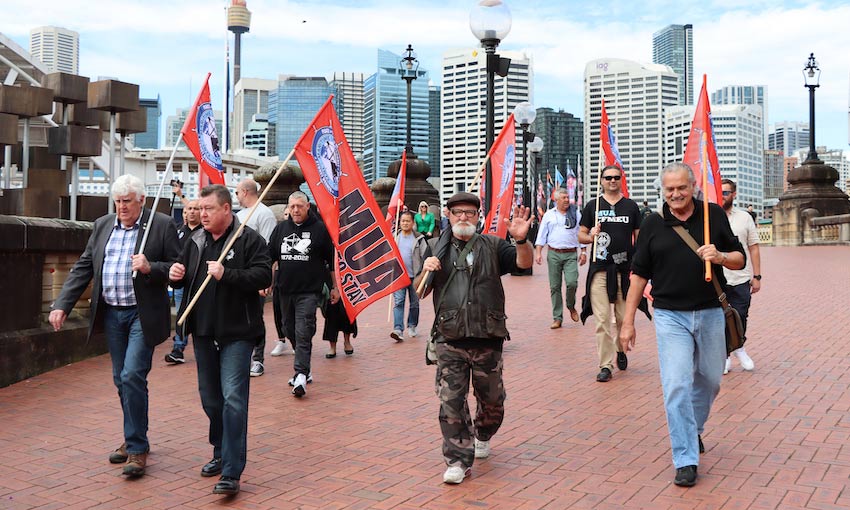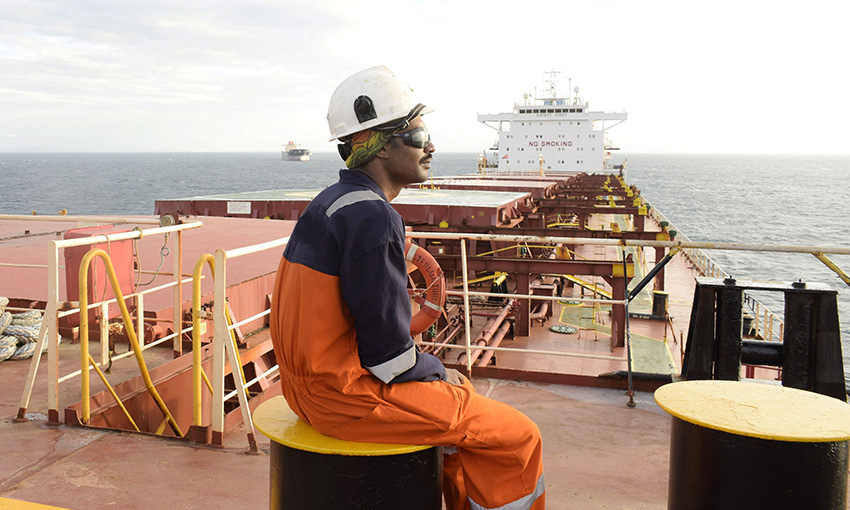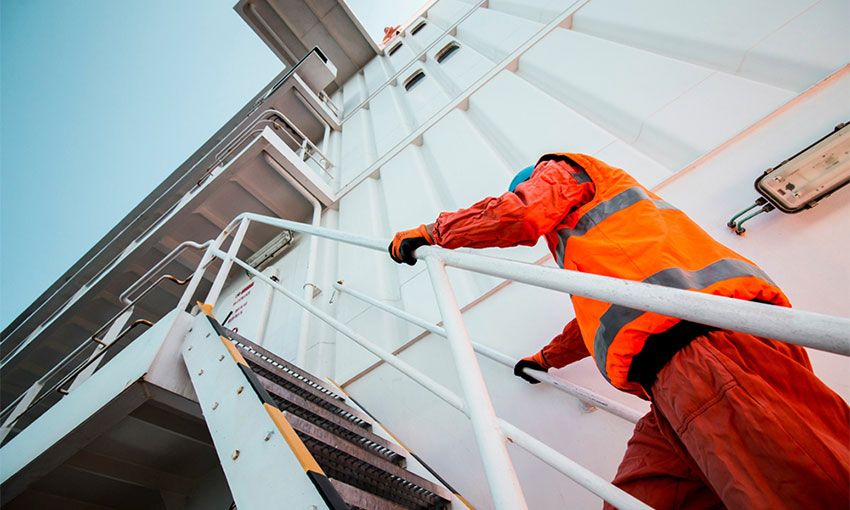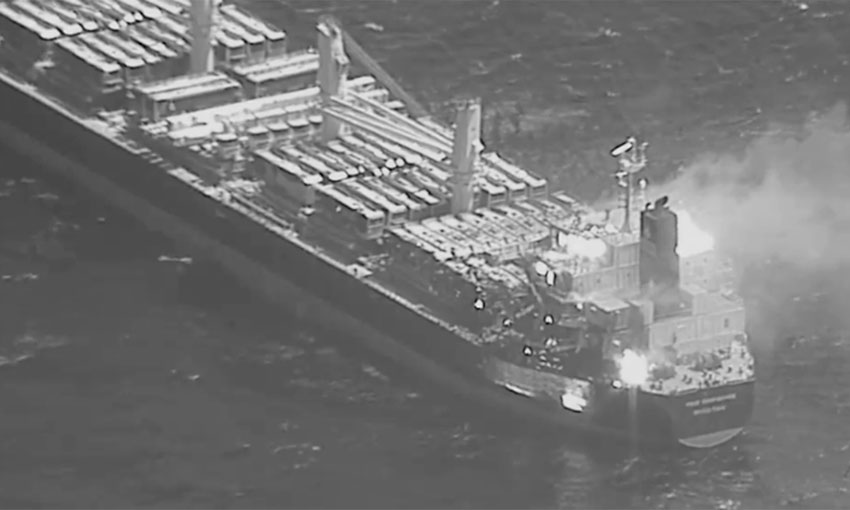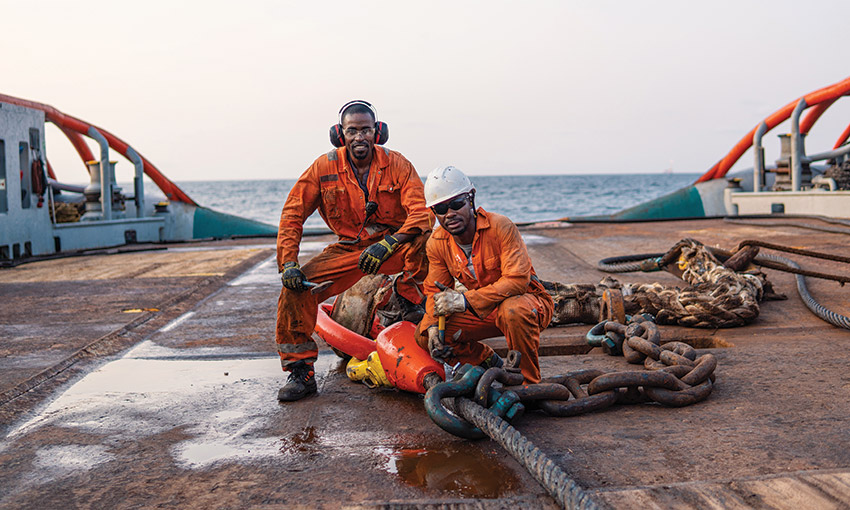SEAFARERS transiting Australian waters are experiencing wage theft amounting to an estimated $65 million each year, according to a report launched today (27 September).
The report, Robbed at Sea, was commissioned by the International Transport Workers’ Federation and conducted by the Centre for Future Work within The Australian Institute, a public policy think tank.
It examines records of ITF wage inspections conducted over the past decade. There are currently four ITF inspectors conducting spot checks of international vessels visiting Australian ports.
Robbed at Sea was launched following World Maritime Day celebrations at the Australian National Maritime Museum in Sydney, including a precession across the Pyrmont Bridge.
Representatives from The Australia Institute and the ITF joined the Sydney Branch of the MUA for the official launch and a discussion on the problems raised in the report, the implications for seafarers and how the issues can be addressed by government.
The study attributed theft of wages and other entitlements faced by seafarers working on foreign-flagged ships to legal loopholes and lax enforcement of labour standards.
According to the report, close to 5000 inspections carried out over the past decade by ITF inspectorates suggest 70% of ships are failing to meet minimum international standards for wage payment and other core labour standards.
During that time frame, the ITF inspectors recovered a total of $38 million in seafarers’ wages.
Rod Pickette, policy advisor to the Maritime Union of Australia and co-author of the report, said the findings of the report challenge the good reputation Australia is perceived to have around labour standards.
“Australia prides itself on being a country that respects the rule of law, and a fair go for workers,” Mr Pickette said.
“Yet, we are allowing some of the most vulnerable workers in the entire global economy to be ruthlessly and knowingly exploited, right here in our own waters.”
Authors of the report noted the ITF team is only able to inspect around 450 visiting vessels each year, “a tiny fraction” of all foreign vessels visiting Australian ports (2.5%).
The $65 million figure is therefore based on “reasonable assumptions” regarding the prevalence of wage theft in other ships which cannot be inspected.
Report co-author Lily Raynes said the repeated inspections had confirmed routine wage theft and other exploitation in Australian ports.
“But those inspections are just the tip of the iceberg,” she said.
“Clearly this exploitation is a normal feature of international shipping, and Australia has both a moral and an economic responsibility to stop it within our jurisdiction.”
The authors explained seafarers on foreign-registered vessels usually come from low-wage developing countries and have little power to resist exploitation by unethical ship owners, contractors, and sub-contractors.
They said stronger rules in port countries such as Australia are necessary to offer greater protection while they are in Australian waters.
The report identified several loopholes and enforcement failures explaining why seafarers are routinely exploited, even when delivering cargo from one Australian port to another.
It also outlined 10 specific recommendations for reducing the incidence of wage theft from international seafarers in Australian waters.
One recommendation involves closing a current legal loophole which allows foreign-registered ships to conduct two trips between Australian ports without needing to respect the Fair Work Act or the Seagoing Industry Award.
Another suggests strengthening inspection resources for the Australian Maritime Safety Authority and the Fair Work Ombudsman to ensure that existing rules are better respected.

